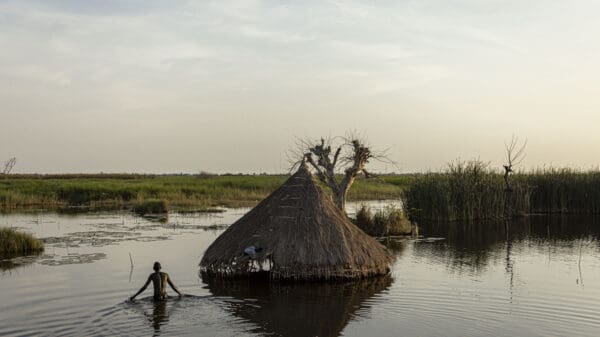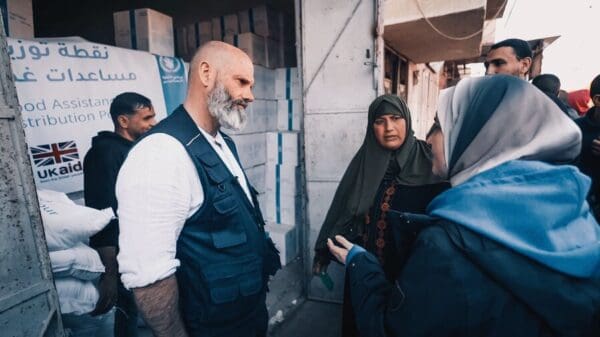A Journey Through El Salvador with WFP
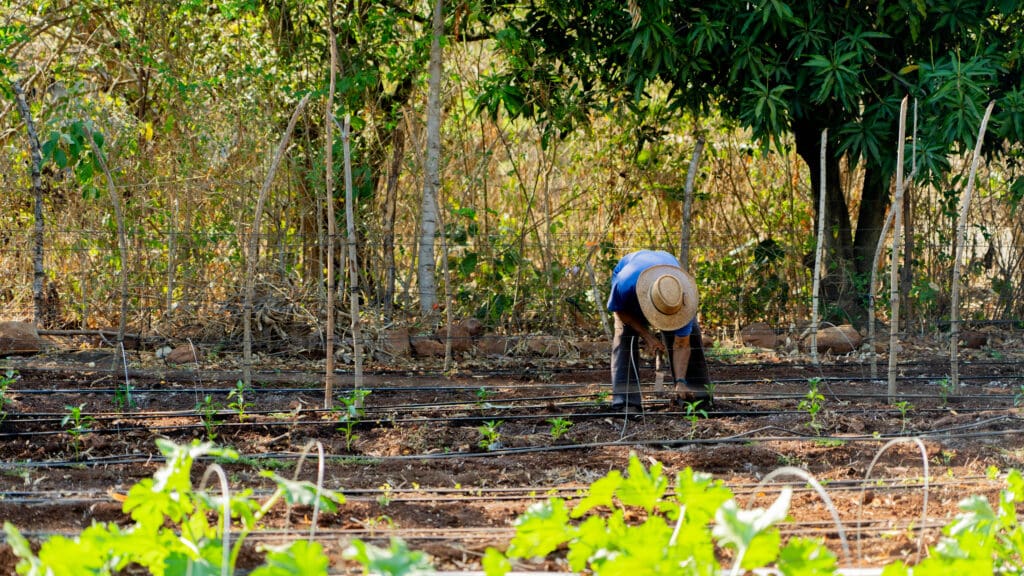
This spring, a group of World Food Program USA supporters and staff visited El Salvador to learn about the work of the United Nations World Food Programme (WFP) and meet the people WFP serves.
El Salvador is the smallest country by area in Central America and home to 6.3 million people. Deep social inequality, violence and low wages are driving people into hunger and poverty. An estimated 12% of the population grapples with food insecurity and 25% of children are anemic. The average monthly income for a household is $378 dollars, and families spend most of their income on food – leaving them with limited funds to pay for other expenses such as education and healthcare. While agriculture is one of the country’s main economic activities, extreme weather events like drought and erratic rainfall are disrupting harvests and threatening farmers’ livelihoods.
We traveled to El Salvador to see how the U.N. World Food Programme is addressing these challenges and helping communities build long-term food security.
School Meals Support Students’ Nutrition
In El Salvador, many schools do not have the infrastructure to safely prepare, store and serve school meals. With the Ministry of Education, Science and Technology, the U.N. World Food Programme introduced a ready-to-use and climate-friendly solution called Kitchen-in-a-Box (KIAB). KIABs are temporary, solar-powered kitchens made out of recycled shipping containers.
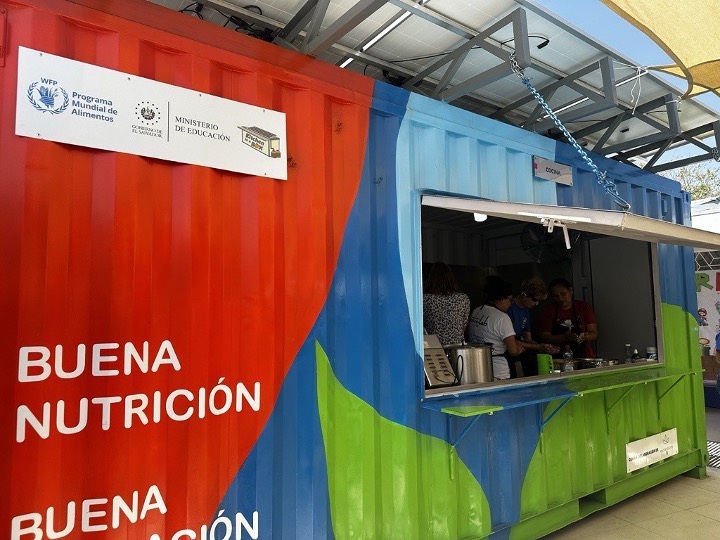
On the first day of the trip, our group savored pupusas – a Salvadoran staple consisting of a corn tortilla stuffed with cheese, beans, or pork – made in a Kitchen-in-a-Box.
The kitchens are equipped with stovetops and refrigerators as well as a rainwater collection system to irrigate school gardens. Thanks to KIABs, children can eat daily school meals and snacks like pupusas.
Across the country, students also receive Biofortik, a biofortied drink made from corn and sorghum. In 2023, the U.N. World Food Programme provided 420,000 children in over 5,000 schools with Biofortik. By replacing an imported product, Biofortik also helps support local markets and agricultural production.
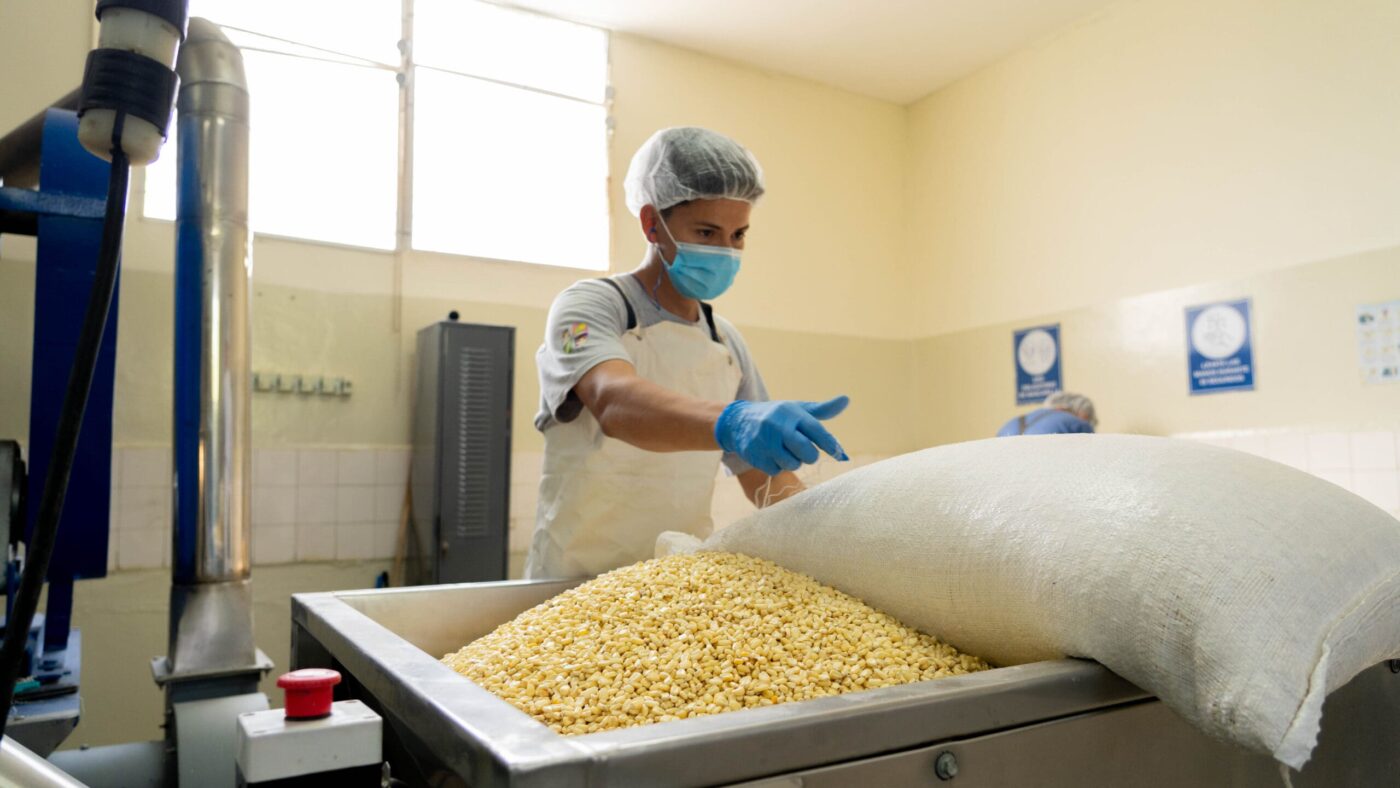
The U.N. World Food Programme helps El Salvador’s government procure local ingredients including corn, sorghum, and sugar to produce Biofortik, a fortified beverage.
Innovative Bakeries Promote Nutrition and Entrepreneurship
In the capital city of San Salvador, the U.N. World Food Programme and its local partner Fe y Alegria lead the Innovative Bakery program. The program provides local bakers with hands-on training to launch and grow their business. Bakers strengthen their financial and management skills and learn how to bake more nutritious foods.
The program also brings in motivational speakers like local entrepreneur Federico, who shared his baked goods and advice with fellow small business owners. Federico’s baking career began with a recipe book he received as a gift, which led him to take a culinary training course in San Francisco and eventually open his own café back in San Salvador.
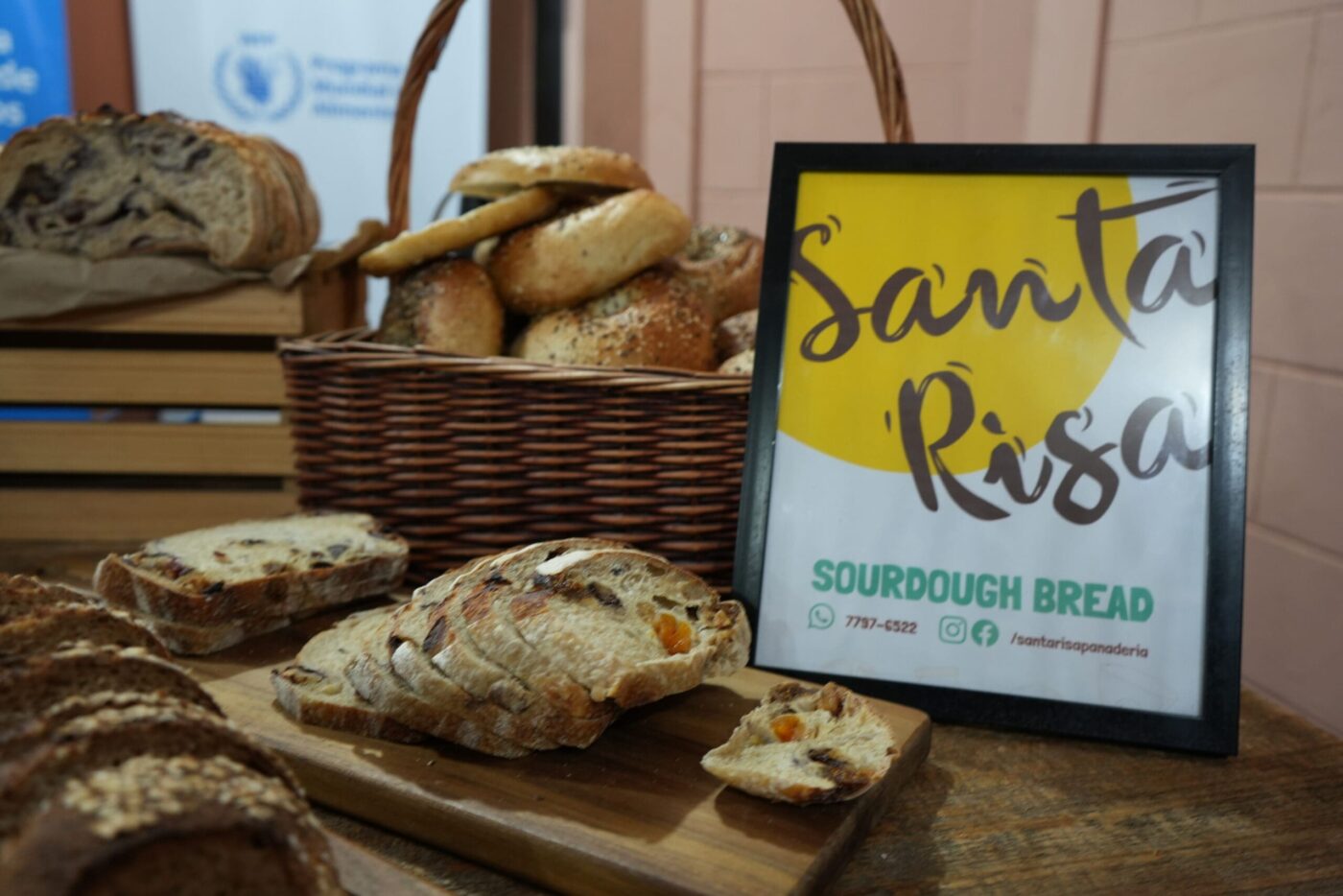
Federico shared his insights about entrepreneurship and brought samples of his freshly baked artisanal bread.
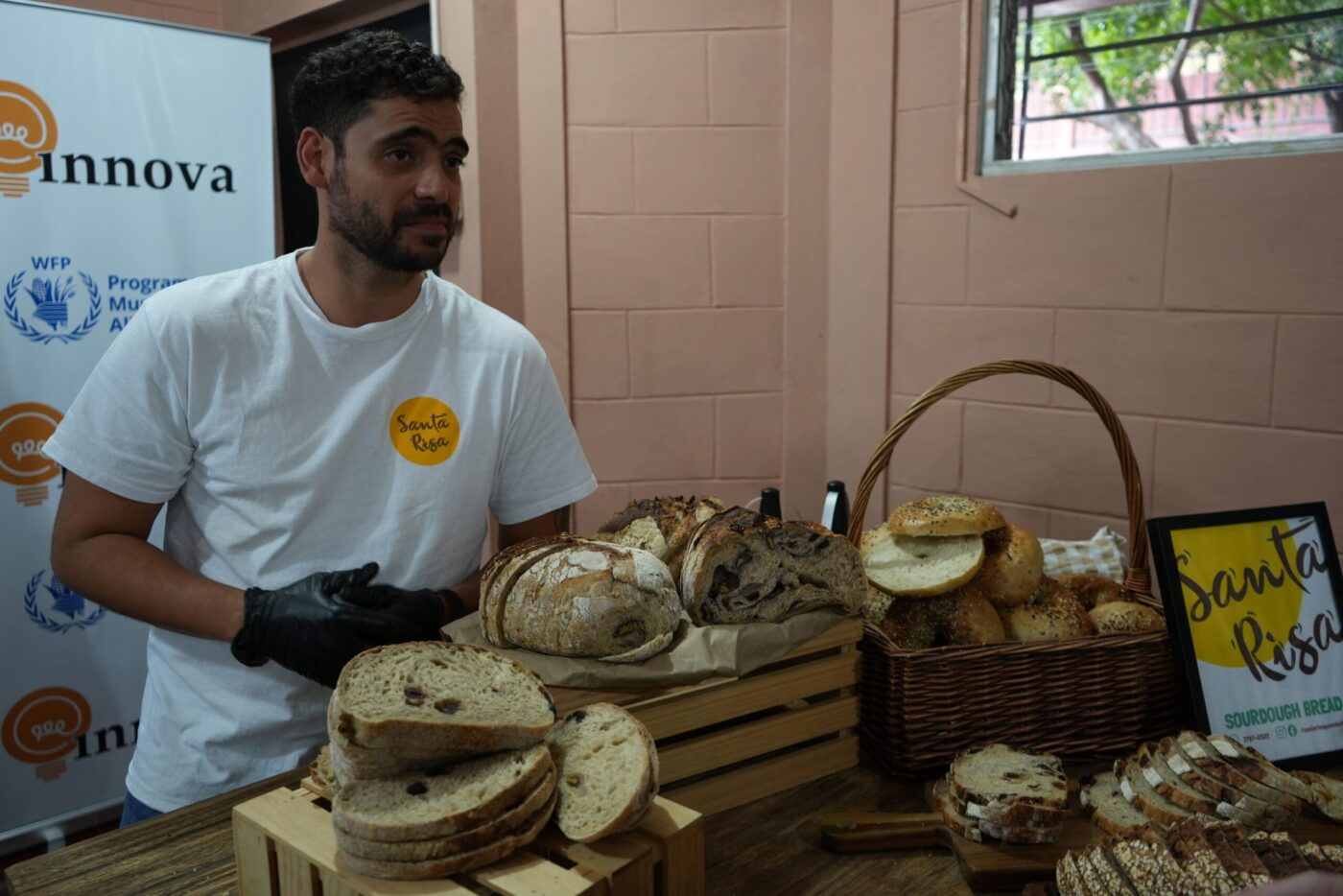
Federico “leaves his heart and soul” in his baking.
The pandemic forced Federico to run his business from home, where he promoted his baked goods over social media. His story shows resilience, as he adapted and maintained his business despite the unprecedented challenges of the pandemic.
Through Gastro-Lab, WFP Invests in Young Salvadorans’ Futures
Two hours away from San Salvador, in the beach town of La Libertad, the U.N. World Food Programme runs a joint vocational project with the Ministry of Tourism. The project, called Gastro-Lab, offers culinary training classes for young adults.
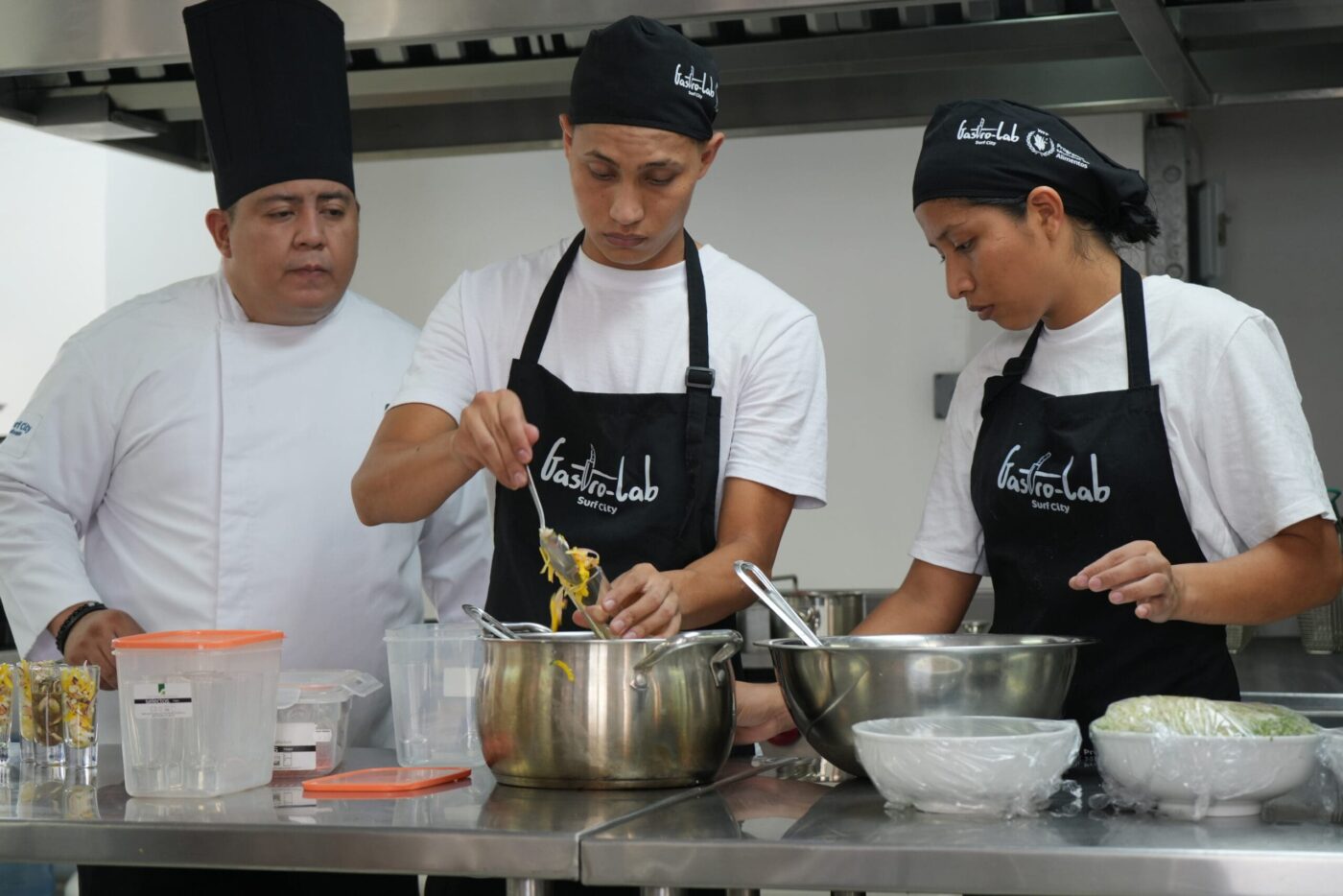
Program participants explained that Gastro-Lab provided them with a unique opportunity to learn the skills required to find jobs in hospitality and instilled confidence to pursue new opportunities.
A 2022 study by the U.N. World Food Programme and the International Organization for Migration found that limited employment opportunities were the main driver of migration from El Salvador, Guatemala and Honduras to the United States. Most recent migrants had left in search of better jobs, wages and working conditions. Salvadorans are also migrating in search of food and safety from violence.
The Gastro-Lab project provides young people with culinary training and helps them find jobs, which mitigates forced migration. Participants receive training in food preparation and safety, entrepreneurship, and business management. There are three Gastro-Labs across El Salvador located in the cities of La Libertad, Santa Ana and La Unión, all funded with contributions from World Food Program USA.
In El Salvador, Farmers Are Growing a Climate Resilient Future
Agriculture is the main source of employment and income for rural families in El Salvador. These farmers already have intergenerational knowledge and expertise about the land they work on. However, as the planet warms and extreme weather events become more intense and frequent, their farmland is changing. With additional training from the U.N. World Food Programme, farmers are learning new techniques that help them adapt to the climate crisis.
In the El Melonal community in eastern El Salvador, the U.N. World Food Programme helped farmers diversify their crop yields by teaching them how to grow sorghum, tomatoes, cilantro and radishes. With more food to sell, farmers can earn more income while supplying their communities with more diverse produce at a lower cost. Sorghum is also a drought-resistant crop, which means farmers can grow it to feed their families or sell it at local markets even in dry seasons.
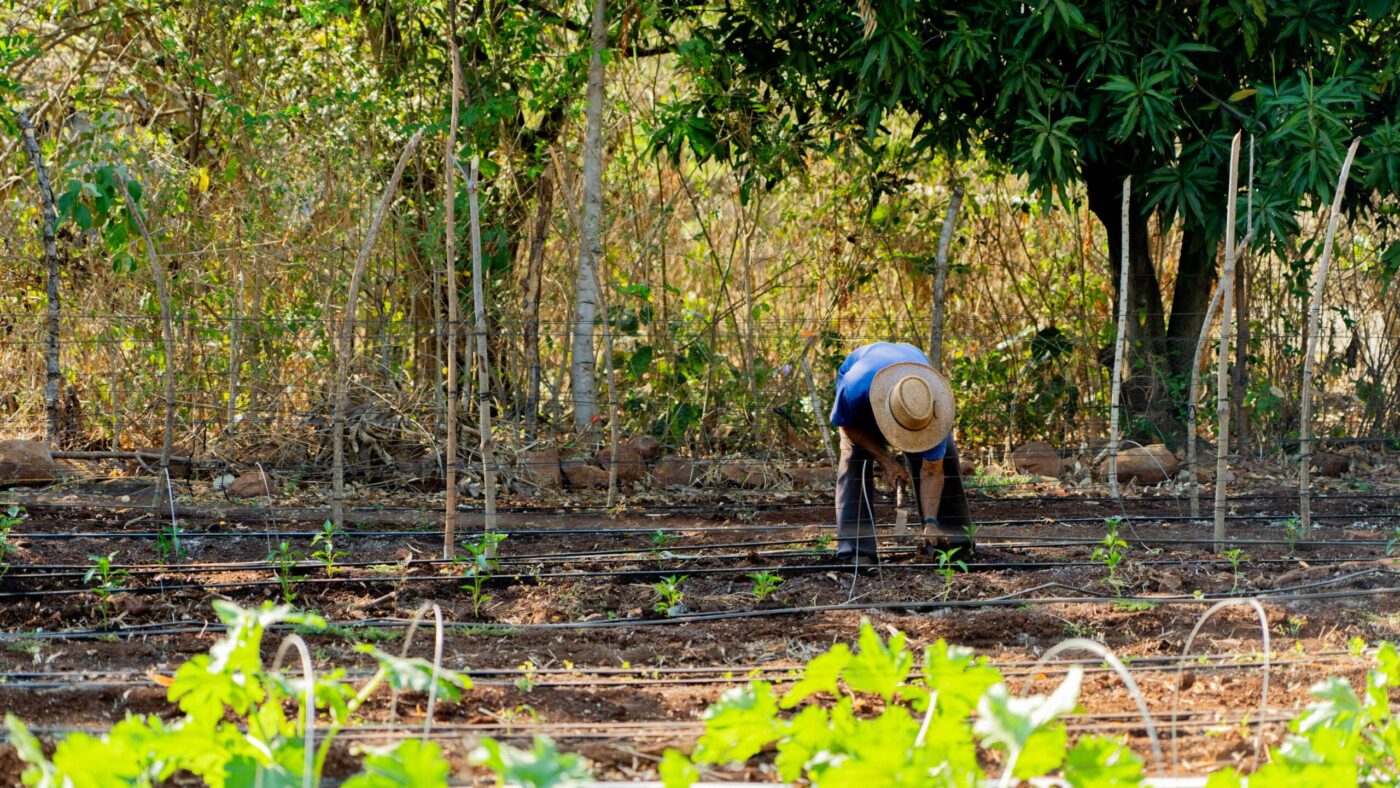
In the El Melonal community, farmers grow a variety of produce and sell some of it at local markets.
Farmers are also encouraged to form savings groups and regularly contribute a portion of their earnings to a joint fund. At the end of the saving cycle, earnings are distributed among participants and the farmers invest in equipment, seeds, and fertilizer. In El Melonal, community members generously directed some of these funds to support their neighbors who faced health issues.
Gender Equality Is Key to Ending Hunger
In El Melonal, women prepare farmland for cultivation by removing heavy rocks and digging through layers of dense red clay to find fertile soil. This effort shows not only the women’s physical strength, but a deeper shift towards gender equality as both men and women work to grow food for their families.
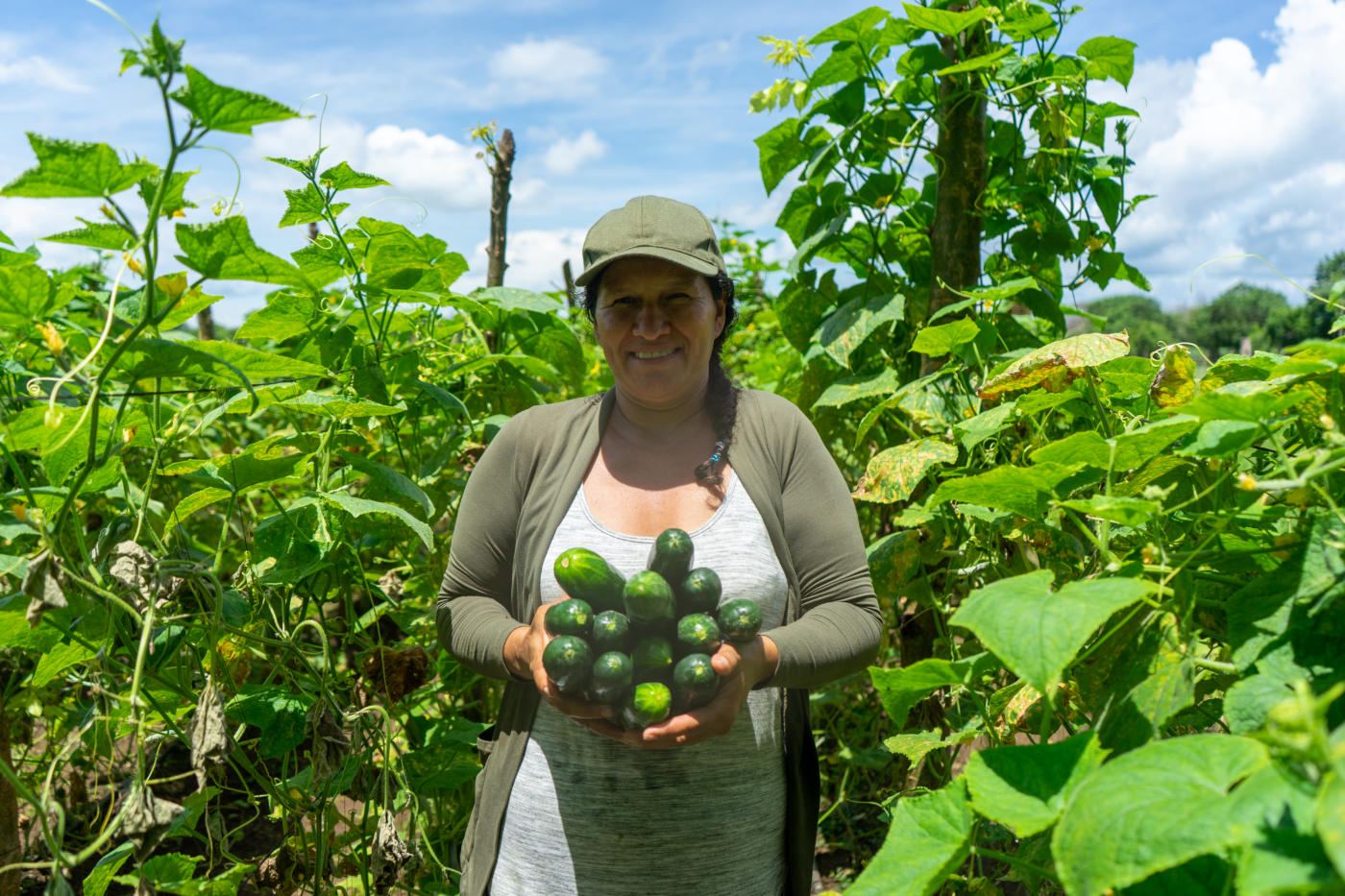
Women who participated in U.N. World Food Programme gender equality training sessions shared that they felt more independent, fearless and proud.
Through gender equality training sessions in El Melonal, the U.N. World Food Programme addresses traditional gender norms that have confined women to caretaker roles in their communities. The trainings help empower women to work in agriculture, serve as local leaders and create support networks. Through heartfelt testimonials, women shared the personal growth and empowerment they have experienced through U.N. World Food Programme trainings.
One program participant said, “Before we took part in the project, our hands shook, and we were scared to speak up. We learned that women are worth so much and began to speak up for ourselves. We have broken barriers and grown as women.”
~
As our group left El Melonal, a woman asked that we remember her community. We hope these stories bring you closer to the people and programs we support in El Salvador.
Powered by World Food Program USA supporters, the U.N. World Food Programme provides people around the world with food and the opportunities to harness their skills and knowledge to end hunger.



